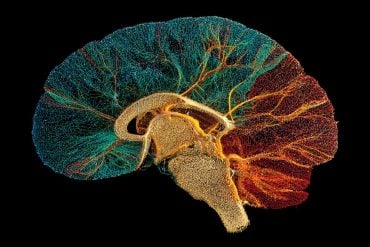Summary: New research reveals that acute stress can impair key brain functions involved in emotion regulation, particularly in individuals with distress-related disorders like depression, anxiety, and borderline personality disorder. The study found that executive functions—such as working memory, impulse control, and cognitive flexibility—are more likely to be disrupted in these individuals during high-stress moments.
This disruption may weaken their ability to manage emotions effectively and reduce the success of therapies like cognitive behavioural therapy (CBT), which depend on intact executive function. The findings suggest that more adaptable or preparatory treatments could be essential for improving outcomes in people vulnerable to stress-related cognitive impairments.
Key Facts:
- Working Memory Impaired: Acute stress significantly disrupts working memory in people with depression.
- Impulse Control Affected: Response inhibition is weakened under stress in those with borderline personality disorder.
- Therapy Implications: Stress-induced cognitive deficits may reduce the effectiveness of therapies like CBT.
Source: Edith Cowan University
New Edith Cowan University (ECU) research suggests that acute stress may impair key brain functions involved in managing emotions—particularly in people living with ‘distress disorders’ such as depression, anxiety, and borderline personality disorder.
The study by ECU Masters student Tee-Jay Scott and Professor Joanne Dickson found that rather than enhancing mental focus in high-pressure moments, stress may temporarily disrupt executive functions—the brain’s control processes that help with problem-solving, planning, and emotion regulation.

“These executive functions are vital for controlling emotional responses, especially in challenging situations,” Mr Scott said.
“Our findings suggest that people with distress-related disorders may be more vulnerable to having these executive functions disrupted under stress, even when their symptoms don’t meet the threshold for a formal diagnosis.”
Stress weakens emotional control tools
Executive functions, such as working memory (holding and using information), response inhibition (resisting impulsive actions), and cognitive flexibility (adapting to change) are key to maintaining emotional balance.
The ECU research reviewed 17 international studies examining how these mental skills are affected by acute stress in people with symptoms of depression, anxiety, or borderline personality disorder.
“We found that working memory is particularly vulnerable to stress in people with depression, and that response inhibition—essential for self-control—may be impaired in those with borderline personality disorder,” Mr Scott explained.
Implications for therapy and treatment
Professor Dickson said these disruptions could help explain why some people don’t respond well to common treatments such as cognitive behavioural therapy (CBT), which relies heavily on these executive functions.
“Many psychological therapies are cognitively demanding,” she said.
“If acute stress is interfering with the mental processes that support emotion regulation, it could undermine a person’s ability to benefit from these treatments—especially during periods of heightened distress.”
A call for new approaches
The researchers say the findings highlight a need for more tailored interventions that account for stress-related cognitive disruptions.
“This research opens up new avenues for understanding how and why distress symptoms and disorders develop and persist,” Professor Dickson said.
“It also points to the importance of designing therapies that are more flexible or that build executive function capacity before emotionally challenging work begins.”
Next steps
While the study confirms a pattern of executive function impairment under acute stress, the researchers say more research to understand individual differences and refine treatment strategies is needed.
“Understanding how stress interacts with brain function is key to improving mental health outcomes,” Mr Scott said.
“It’s not just about what therapy is used, but when and how it’s delivered that will help ensure its effective.”
About this stress and emotional regulation research news
Author: Joanne Dickson
Source: Edith Cowan University
Contact: Joanne Dickson – Edith Cowan University
Image: The image is credited to Neuroscience News
Original Research: Closed access.
“Effects of acute stress on executive functions in depression, generalised anxiety and borderline personality disorder” by Joanne Dickson et al. Journal of Affective Disorders Reports
Abstract
Effects of acute stress on executive functions in depression, generalised anxiety and borderline personality disorder
Background: Acute stress adaptively alters executive functions (EFs) essential for emotion regulation. Emerging systems of psychiatric classification, such as the Hierarchical Taxonomy of Psychopathology (HiTOP) and the Research Domain Criteria, emphasise the underlying mechanisms and dimensional nature of psychopathology.
Distress disorders—a subfactor within the HiTOP model including major depressive disorder, generalised anxiety disorder and borderline personality disorder—are characterised by altered stress reactivity, impaired emotion regulation, and modest responsiveness to first-line psychotherapies.
This systematic review sought to examine whether distress disorders and their related symptoms confer heightened vulnerability to transient EF impairment under conditions of acute stress.
Methods: A comprehensive search of articles published in ProQuest, PsycINFO, PubMed, Scopus and Web of Science prior to December 31st, 2022 identified 17 suitable studies examining stress-induced alterations to working memory, inhibition and cognitive flexibility in the context of distress disorders and associated symptoms.
Results: This review found a heightened susceptibility to stress-induced impairment of working memory in depression, and of response inhibition in borderline personality disorder—even for sub-clinical presentations of depressive symptoms wherein diagnostic criteria for a depressive disorder were not met.
Findings for cognitive flexibility were inconclusive. Limitations: While a thorough systematic review was conducted, heterogeneity in study design and methodologies precluded inclusion of a meta-analysis.
Conclusions: The findings indicate that altered stress reactivity leads to maladaptation of EF under acute stress, and subsequent disruption of adaptive emotion regulation strategies. The present finding may help account for non-responsiveness among therapeutic interventions predicated upon cognitively-demanding emotion regulation strategies.







